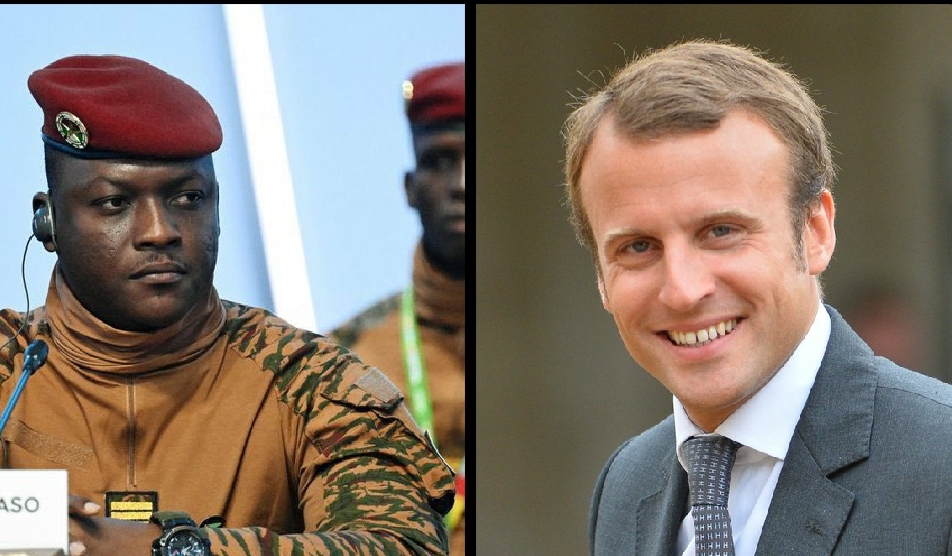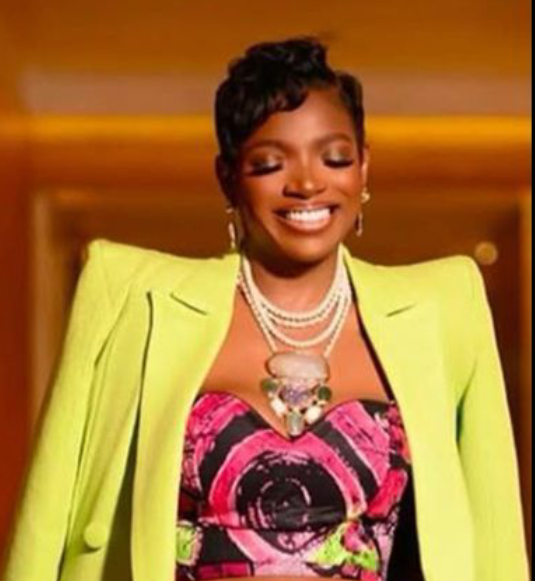
Macron vs Traoré: Tensions Explode as France Accuses Burkina Faso’s Leader of Looting Nation’s Wealth

In a bold and fiery statement that’s already sending diplomatic shockwaves across West Africa, French President Emmanuel Macron has openly accused Burkina Faso’s military ruler, Captain Ibrahim Traoré, of plundering the country’s mineral resources for personal gain while abandoning democratic principles.
During a high-profile address in Paris, Macron didn’t hold back:
> “I am not afraid of Ibrahim Traoré. He is using the country’s minerals to his own benefit. Democracy must be restored back in Burkina Faso.”
The comment, sharp and unsparing, has ignited fresh outrage and debate across the continent — and within the BRICS-backing Sahel states now leaning away from traditional Western allies.
Macron’s remarks come on the heels of Traoré’s regime extending its transitional government’s timeline by another five years, pushing any potential return to democracy until 2029 — a move widely condemned by international observers and human rights groups. Since seizing power in September 2022 in the second coup within a year, Traoré has been walking a dangerous tightrope between defending national sovereignty and clamping down on dissent under the guise of “security stabilization.”
But Macron’s accusation pushes the conversation into far more volatile terrain. The French president has effectively labeled Traoré not just as an authoritarian — but as a profiteer capitalizing on Burkina Faso’s gold, manganese, and phosphate wealth while ordinary citizens endure poverty, insecurity, and constant attacks from jihadist forces.
The military-led government in Ouagadougou has not issued a formal reply, but sources within the junta have dismissed the statement as “neo-colonial propaganda.” Social media across Burkina Faso exploded with divided opinions: some hailed Macron for “speaking the truth others fear,” while others denounced it as “foreign interference in African affairs.”
And it’s not just talk. Macron’s speech hinted at the possibility of renewed sanctions, travel bans, or EU economic blocks targeting individuals and companies tied to the junta’s illicit resource extraction deals. France is also reportedly lobbying ECOWAS and the African Union to take firmer stances against prolonged military rule in the region — not just in Burkina Faso, but in Mali, Niger, and Guinea as well.
Tensions between France and its former colonies in the Sahel have reached boiling point in recent years. From anti-French protests to the abrupt expulsion of French troops and diplomats in Mali and Niger, the Sahel’s pivot away from Western influence has been rapid and unmistakable. Traoré’s administration, like others in the region, is actively courting Russia and China for military hardware, security assistance, and mining investment.
That pivot now appears to be provoking full-blown confrontation.
Macron’s comments underscore a growing Western frustration with the rise of military strongmen in Africa, who claim to be protecting sovereignty while systematically delaying elections, stifling opposition, and consolidating power — often with help from foreign mercenaries and shadowy contracts.
But critics of Macron are asking tough questions too. Where was this energy, they argue, when decades of French economic and political interest helped prop up corrupt regimes in Francophone Africa? Why speak out now — after being kicked out militarily and replaced by new global players?
Still, even Macron’s harshest critics admit his warning has struck a nerve. With Burkina Faso’s citizens now facing some of the highest displacement, food insecurity, and terrorist attacks on the continent, the idea that billions of dollars in gold and resources are being channeled into private hands — and not national development — is a bitter pill.
For many Burkinabés, the real battle isn’t just between Traoré and Macron — it’s between truth and propaganda, between military promises and democratic reality, between national pride and everyday poverty.
And in the streets of Ouagadougou, where power often changes hands in coups, not ballots, there’s a growing sense that something is about to give. Whether it’s the junta responding with defiance, or the people demanding more than slogans — the next chapter of this story is far from written.
Because when a president thousands of miles away dares to say, “I am not afraid,” it usually means the real fight has just begun.
Stay with Busterblog.com for full coverage as this explosive face-off between Paris and Ouagadougou unfolds — and as West Africa redefines what democracy, justice, and power truly mean.

